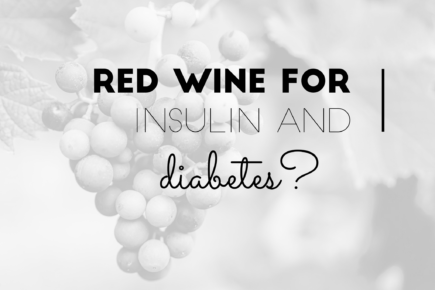Can a compound most famously found in red wine help with Type 2 diabetes (T2D)? Sounds too good to be true, right?
Although it’s not as simple as just drinking wine it is true. Resveratrol is a polyphenol found in red wine that may be a new treatment option for those living with insulin resistance and type 2 diabetes (T2D). With the number of people affected by this condition increasing each year, it’s more important than ever to look into all possible treatment options.
Why consider resveratrol?
The surge in rates of obesity in recent years has been defined as an epidemic by many scientists. T2D is a condition commonly associated with overweight and obese individuals, which is also a significant concern. How are these two things related? Well a component underlying both obesity and T2D is insulin resistance.
Normally when we consume food, our pancreas secretes the hormone insulin to help glucose from our blood stream enter our cells for energy production. In insulin resistance, the cell is desensitized to insulin and glucose isn’t brought into the cell. Instead, it the glucose accumulates in the blood stream causing many complications affecting our eyes, kidneys, and brain. With such potentially severe consequences, it is important to address insulin resistance as best we can. This is what lead the researchers of this study to look at resveratrol, a polyphenol, and its effects on insulin resistance.
What is resveratrol?
Polyphenols are found in plants and plant-derived foods. When you think of resveratrol in particular, you think of the dark rich colour of red grapes or blueberries.
Now you may be asking how much resveratrol you need to take to see benefits. Studies have shown that at low doses resveratrol may have a positive antioxidant effect (decreasing damage to cells and lowering inflammation) and at high doses it may a damaging pro-oxidant effect.1 Studies have not been conclusive on exact dosing, so it is important to understand the dose-dependent effects of the compound.
What does it do?
Resveratrol comes with a list of health benefits: anti-diabetic, anti-cancer, heart protective, anti-obesity, anti-inflammatory, anti-tumour and antioxidant2. These effects come from resveratrols positive influence at the mitochondrial level. As a reminder, mitochondria are the powerhouse of our cells where energy is made3. In an effort to power our day-to-day our mitochondria make a lot of damaging free radicals that act like peroxide in a cut. These need to be dealt with to prevent damage and resveratrol helps to do that.
Resveratrol also works in a similar manner to aspirin leading to an anti-inflammatory effect4. In terms of T2D specifically, resveratrol has been shown to increase glucose uptake without insulin present, which is a very significant finding for those suffering from this condition.5
It’s easy to get caught up in the flashy titles of “anti-this” and “anti-that”. But there isn’t a magic pill for anything unfortunately. It is essential to understand that foods that contain resveratrol are one very important component of a holistic plan to preserve health and prevent disease.
What’s better: whole foods or supplementation?
Seeing as polyphenols are found in plants, it is as important as ever to ensure eating a whole foods diet based around your fruits, vegetables, and legumes. Blueberries, blackberries and currents are three of my favorite polyphenol containing foods. (A glass of red wine doesn’t hurt once in a while either!)
Resveratrol can also be supplemented and if you choose to do this it should be the trans-resveratrol form that you are using.
References:
- Mukherjee, S., Dudley, J. I., & Das, D. K. (2010). Dose-dependency of resveratrol in providing health benefits. Dose-Response : A Publication of International Hormesis Society, 8(4), 478–500. https://doi.org/10.2203/dose-response.09-015.Mukherjee
- Abbasi Oshaghi, E., Goodarzi, M. T., Higgins, V., & Adeli, K. (2017). Role of resveratrol in the management of insulin resistance and related conditions: Mechanism of action. Critical Reviews in Clinical Laboratory Sciences, 54(4), 267–293. https://doi.org/10.1080/10408363.2017.1343274
- Weiskirchen, S., & Weiskirchen, R. (2016). Resveratrol: How Much Wine Do You Have to Drink to Stay Healthy? Advances in Nutrition (Bethesda, Md.), 7(4), 706–18. https://doi.org/10.3945/an.115.011627
- Smoliga, J. M., Baur, J. A., & Hausenblas, H. A. (2011). Resveratrol and health–a comprehensive review of human clinical trials. Molecular Nutrition & Food Research, 55(8), 1129–41. https://doi.org/10.1002/mnfr.201100143
- Szkudelski, T., & Szkudelska, K. (2011). Anti-diabetic effects of resveratrol. Annals of the New York Academy of Sciences, 1215(1), 34–39. https://doi.org/10.1111/j.1749-6632.2010.05844.x

